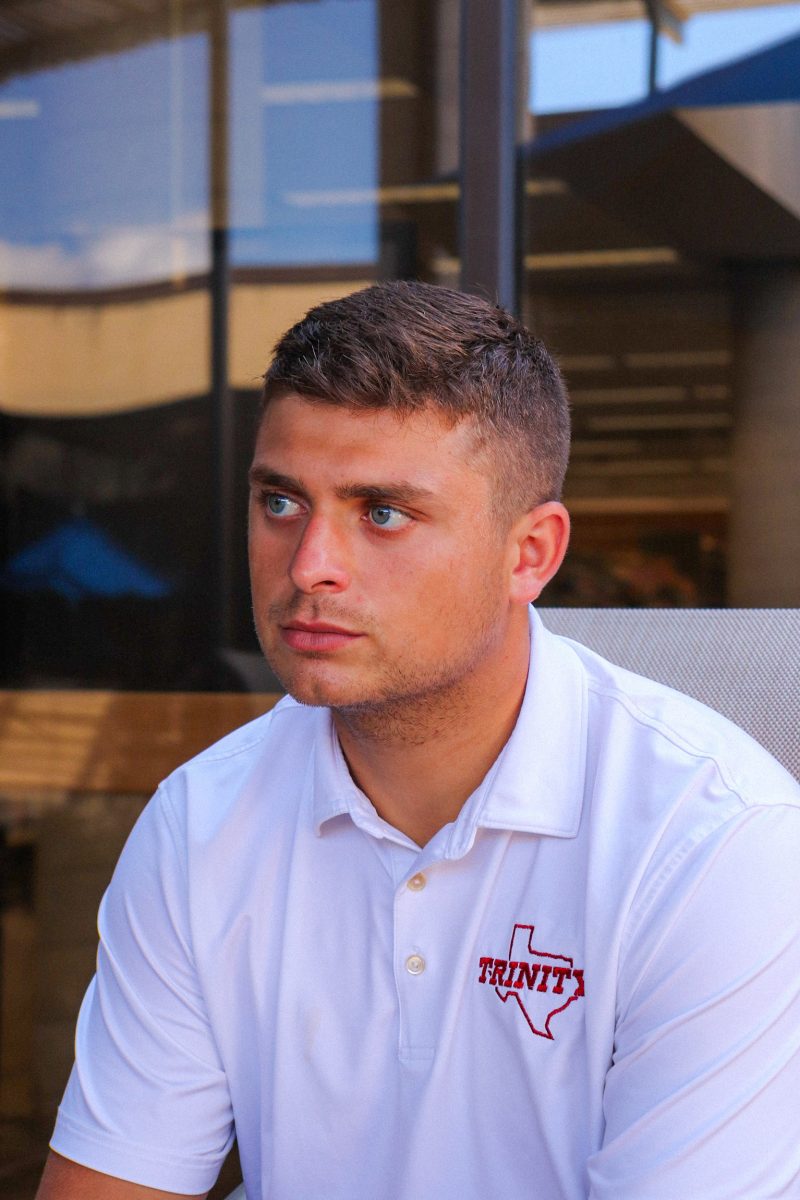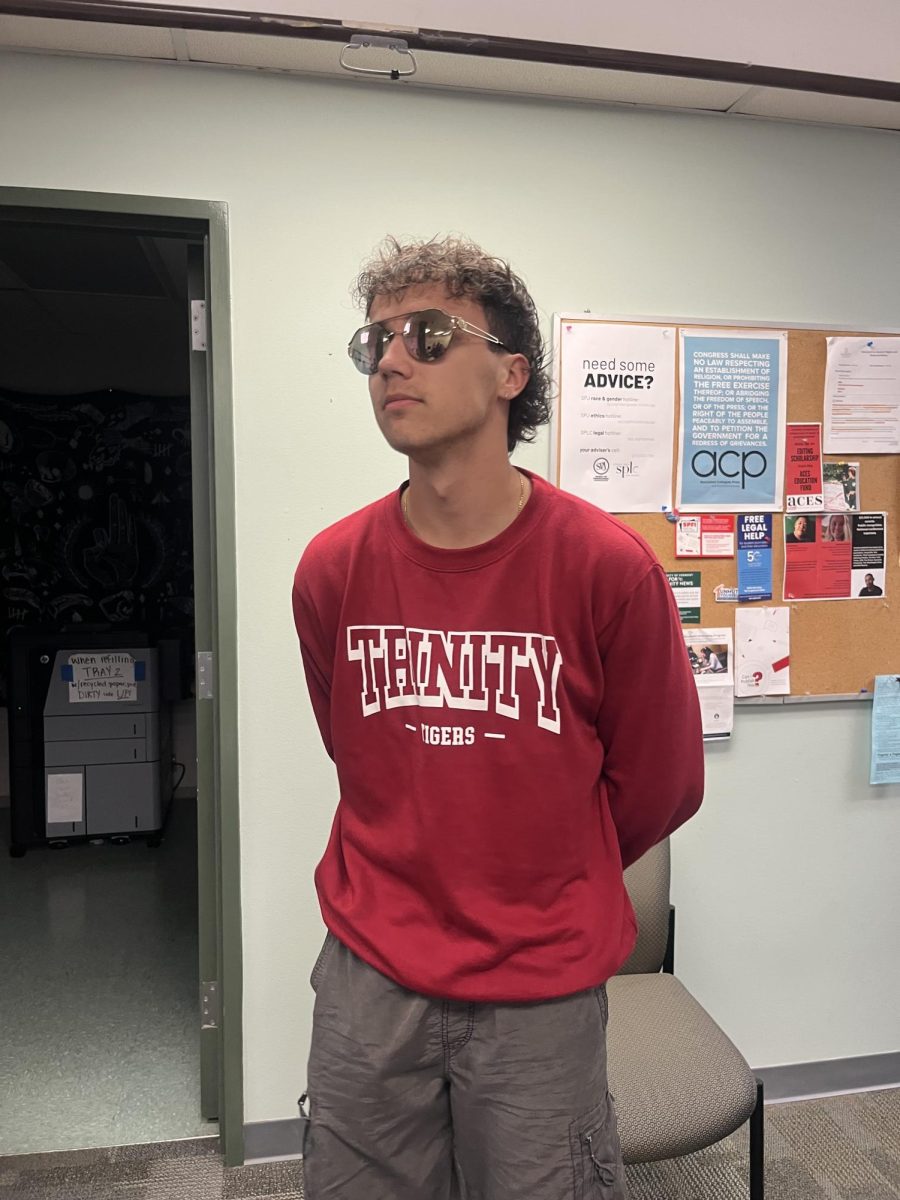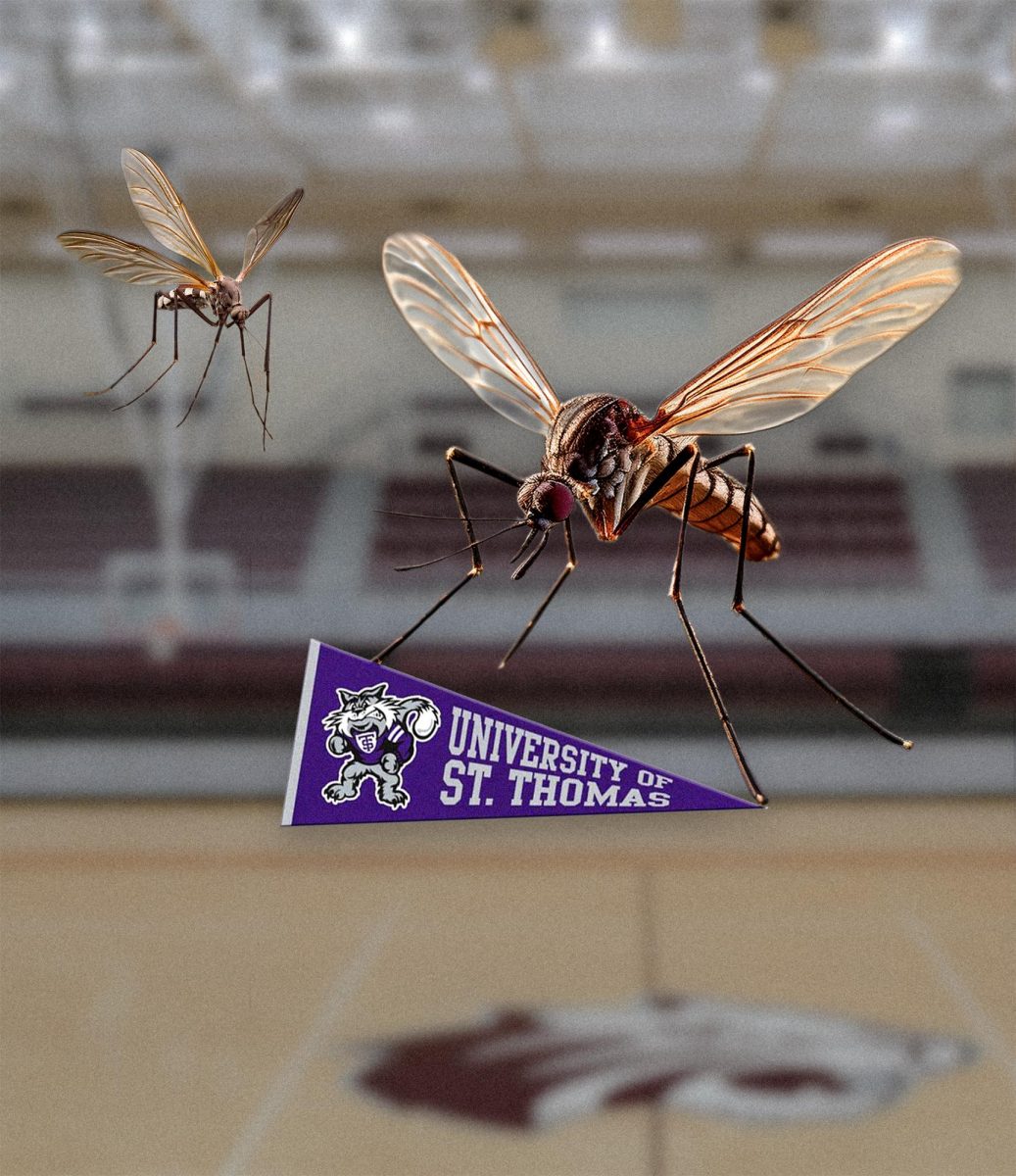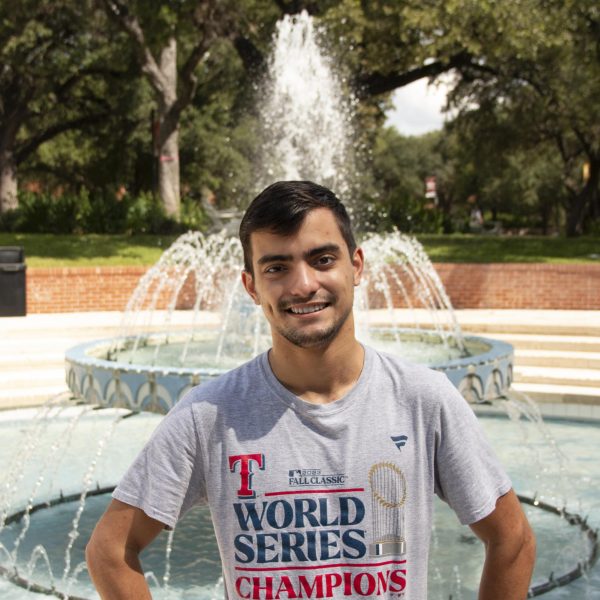Much has been said about the effects of COVID throughout the world, impacting every part of life up to today. One aspect that isn’t widely talked about, particularly in regards to college life, is the way that athletes received an extra year of eligibility for their NCAA competitions. This year’s super senior class represents the second-to-last class eligible to receive this extra year, with their final year representing more than just another chance to play the sport they love.
For Tucker Horn, finance and accounting double-major, the decision to return for year five matched fifteen other teammates on the Tiger football team. Horn started his fifth year as Trinity’s quarterback, and has so far led the Tigers to a 5-1 record after their 31-3 victory over Centre College on Saturday. The majority of starters on the team are represented by the super senior and senior classes, which was a natural expectation heading into the season.
“The decision for all of us to come back was kind of unspoken,” Horn said. “There was some talk about whether or not we were staying, but it was mostly just confirmation. The guys love our team and want to be around.”
Horn returns to Trinity after a season that saw the Tigers advance to the second round of the NCAA playoffs. Along with earning the school’s third conference title in 4 years, Trinity went 11-1 on the year with their only loss coming in the final game — a 17-24 defeat at the hands of the University of Mary Hardin-Baylor.
“We’ve put in a lot of work over the last couple of years,” Horn said. “If you get the opportunity to play another season, why not take it? The rest of life is going to come fast enough, so we’re trying to savor it while we can.”
Another super senior hoping for success in her final season is Nadia Kern, environmental studies and communication double-major, playing the libero position for Trinity’s regional championship-winning volleyball team. Kern and the Tigers had an incredible run in 2022, finishing the year with a runner-up finish in the National Championship. The team finished with a 30-5 record, and set expectations for another strong year.
“Knowing you’re that close makes you feel like it’s not over,” Kern said. “We didn’t give up, and we were just one game away. If we’re in that situation again, we’ll be much more motivated and have more passion to finish that final step. We’ve made it to the Elite Eight, the Final Four, the Top Two — now we just need to check that final box with a championship.”
Kern is joined by only two other super seniors: Marisa Amarino, communications major, and Brette Thorton, accounting major. The three have had massive impacts on the team throughout their time at Trinity, and are looking to see continued success on a team they love.
“Coming back was an easy decision because I have nothing to complain about,” Kern said. “I don’t want to speak on behalf of Brette and Marisa, but I feel like it was a pretty easy decision for all of us. It felt like we all knew we were going to stay.”
Another super senior making his final run, both literally and metaphorically, is Ben Whittemore, accounting major, the only super senior on the men’s cross country team. Whittemore has his name written in the Trinity recordbooks, holding the second-fastest 8K run time in school history as well as the tenth-fastest 1500m run.
“Once COVID happened, I had the fifth year in my back pocket,” Whittemore explained. “I love the team and the program, so it was an easy decision to come back. The team’s moving up, and I was grateful to come back.”
One of the advantages of being able to take a fifth year, besides being able to make up for a season that may have been shortened or canceled due to COVID, is being able to spend another year improving and training. The extra experience can have a big impact on the athletes, but can also help the ways that younger athletes learn.
“One of the biggest issues with running injuries is that because they’re non-contact, they’re a lot harder to diagnose,” Whittemore said. “We have a lot of older athletes who have typically been hurt more often because they’ve been around longer. It can be easier to pass down physical therapy tips and things that can help underclassmen who are willing to listen.”
Another significant benefit of taking an extra year revolves around the relationships between teammates and coaches, which can be a huge help for student-athletes.
“We have a lot of young athletes, so I think we’re really successful at making people feel like a part of the team right off the bat,” Kern said. “Even though there’s a huge age gap and experience gap on this team, it doesn’t feel like it because we hold everyone to the same standard.”
“The coaches know that we’re an old team, so they talk to us like we’re a very old team,” Horn said. “A lot of things we do are player-led and there’s a lot of communication with the coaches about how things are going. The older guys have done a good job of establishing the culture in the younger players and there’s a lot of respect. We’re trying to pass on everything we possibly can so that Trinity football stays that way in the future.”
“Most of the time, we’re here in college for four years, which is a lot of time,” Whittemore said. “Adding another year is an extra 20% of our lives. Even though it feels like four years is a lot, it goes by really fast.”









